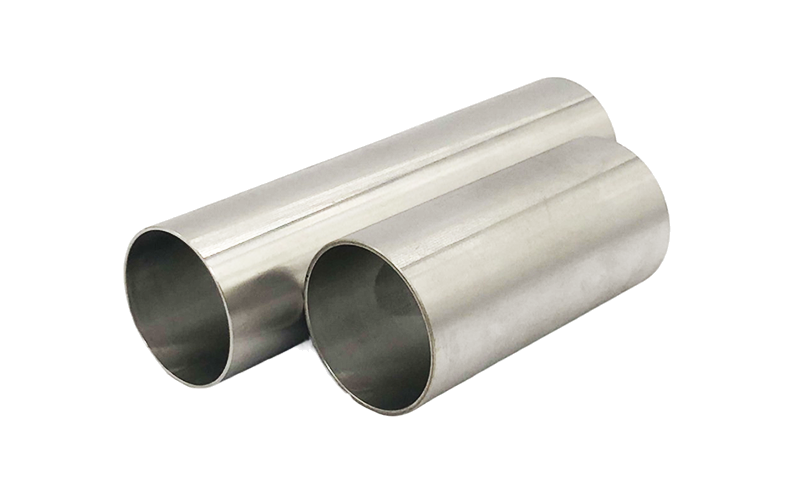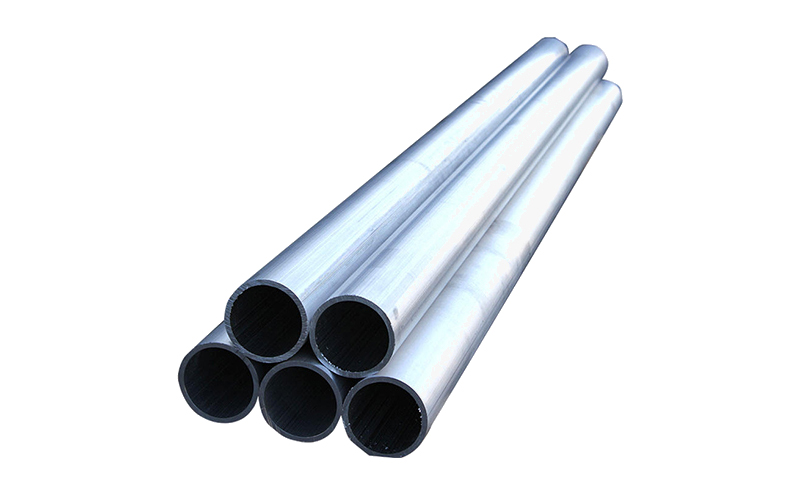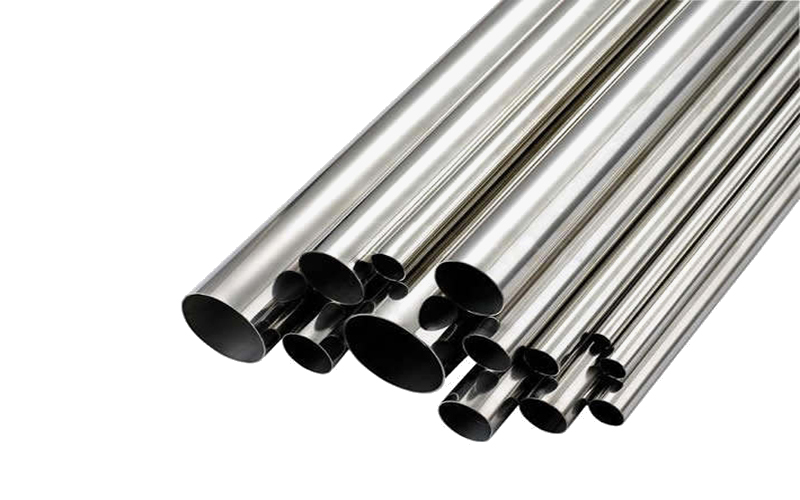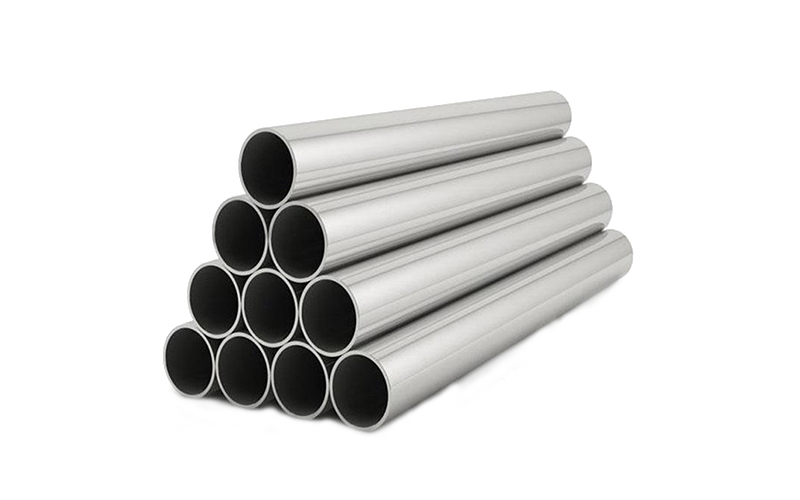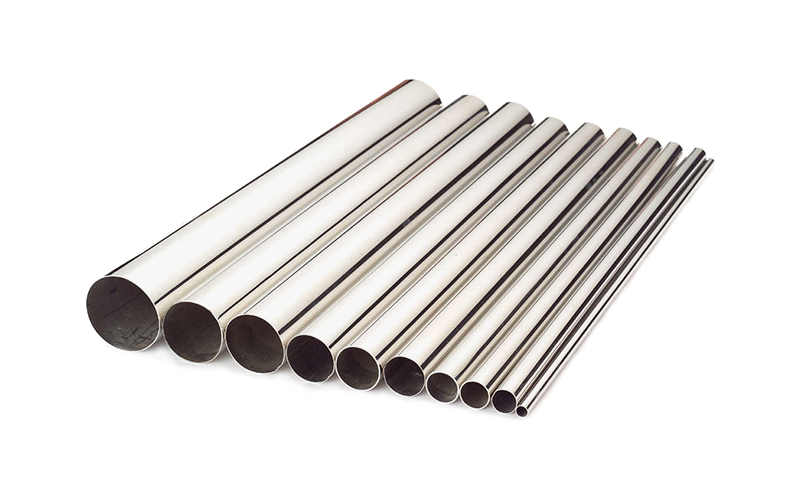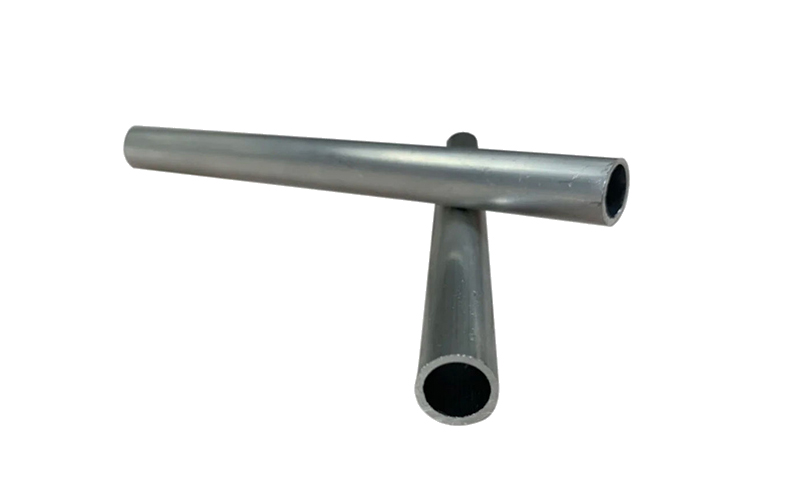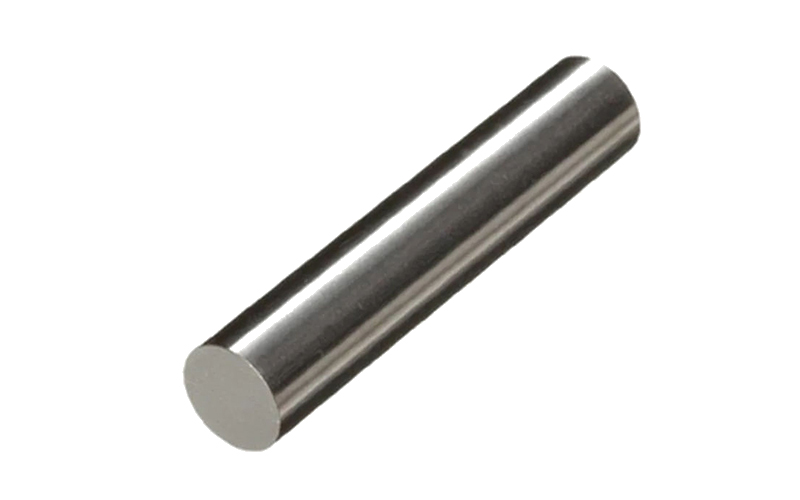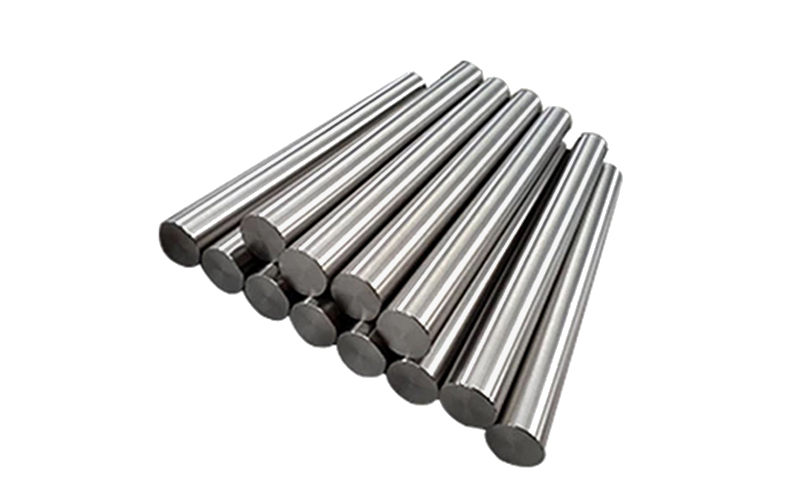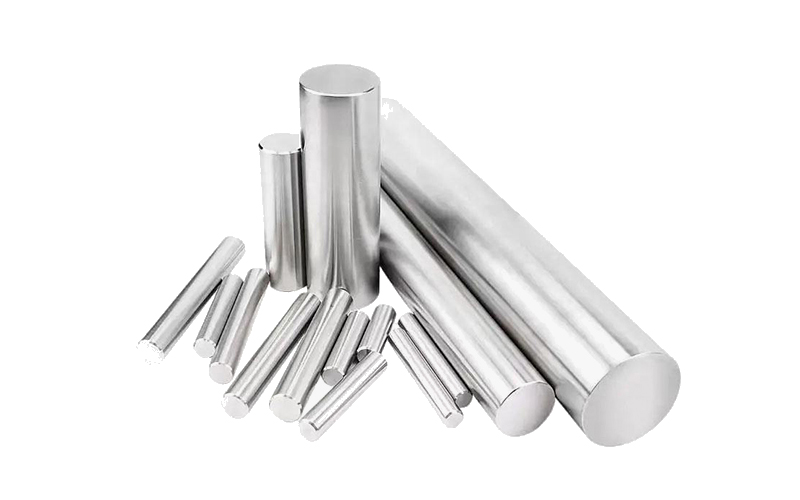 Monel alloy pipeMonel is a kind of corrosion resistant alloy with large dosage, wide use and excellent comprehensive performance. The alloy has excellent corrosion resistance in hydrofluoric acid and fluorine gas medium, and also has excellent corrosion resistance in hot concentrated alkaline solution. It is also resistant to corrosion of neutral solution, water, sea water, atmosphere and organic compounds. One of the most important characteristics of the alloy is that stress corrosion cracks do not occur in general, and the cutting performance is good. The structure of Monel alloy is single phase solid solution with high strength.
Monel alloy pipeMonel is a kind of corrosion resistant alloy with large dosage, wide use and excellent comprehensive performance. The alloy has excellent corrosion resistance in hydrofluoric acid and fluorine gas medium, and also has excellent corrosion resistance in hot concentrated alkaline solution. It is also resistant to corrosion of neutral solution, water, sea water, atmosphere and organic compounds. One of the most important characteristics of the alloy is that stress corrosion cracks do not occur in general, and the cutting performance is good. The structure of Monel alloy is single phase solid solution with high strength. Nickel alloy pipeNickel alloy tube is a tubular material made of an alloy of nickel and other metallic elements (such as copper, iron, chromium, molybdenum, etc.). This alloy tube has excellent corrosion resistance, high temperature strength and good mechanical properties, so it is widely used in various industrial fields.
Nickel alloy pipeNickel alloy tube is a tubular material made of an alloy of nickel and other metallic elements (such as copper, iron, chromium, molybdenum, etc.). This alloy tube has excellent corrosion resistance, high temperature strength and good mechanical properties, so it is widely used in various industrial fields.
In the nickel alloy tube, nickel is the main component, usually more than 80%, and the addition of nickel can improve the strength, corrosion resistance and high temperature performance of the alloy. The addition of other metal elements, such as iron, chromium, molybdenum, etc., can further enhance the properties of the alloy, such as improving strength and corrosion resistance.
Nickel alloy tubes are widely used in chemical, petroleum, energy, aerospace and other fields. For example, in the chemical industry, nickel alloy tubes can withstand acid-base corrosion and high temperature and high pressure environments, and are suitable for reactors, ammonia synthesis equipment, alkane conversion equipment and sulfuric acid equipment. In the field of aerospace, nickel alloy tube because of its excellent high temperature resistance and mechanical properties, suitable for aircraft engines, aerospace propulsion systems, jet engines in wormwheel blades, nozzles, combustion chambers and so on.
The manufacturing process of nickel alloy tubes usually includes melting, casting, forging, heat treatment, machining and other steps to get the desired size, shape and performance of the alloy tube.
It should be noted that the specific composition, performance and application areas of nickel alloy tubes may vary depending on the manufacturer and market needs. Therefore, when selecting and using nickel alloy tubes, it is necessary to make a reasonable choice according to the specific application environment and requirements. Titanium alloy pipeTitanium is a very active metal with low equilibrium potential and high thermodynamic corrosion tendency in media. But in fact titanium in many media is very stable, such as titanium in oxidation, neutral and weak reducing media is corrosion resistant. This is because titanium and oxygen have a very large affinity, in the air or oxygen-containing medium, titanium surface generates a layer of dense, strong adhesion, inert oxide film, protect the titanium matrix from corrosion. They heal or regenerate quickly even due to mechanical wear. This indicates that titanium is a metal with a strong tendency to passivate. The oxide film of titanium always keeps this property when the temperature of the medium is below 315℃.
Titanium alloy pipeTitanium is a very active metal with low equilibrium potential and high thermodynamic corrosion tendency in media. But in fact titanium in many media is very stable, such as titanium in oxidation, neutral and weak reducing media is corrosion resistant. This is because titanium and oxygen have a very large affinity, in the air or oxygen-containing medium, titanium surface generates a layer of dense, strong adhesion, inert oxide film, protect the titanium matrix from corrosion. They heal or regenerate quickly even due to mechanical wear. This indicates that titanium is a metal with a strong tendency to passivate. The oxide film of titanium always keeps this property when the temperature of the medium is below 315℃. Incoloy alloy pipeIncoloy is suitable for all concentrations of sulphuric acid at low temperatures; In 50% ~ 70% concentration of caustic alkali solution (such as NaOH), it has good corrosion resistance and does not produce stress corrosion cracking. Inconel is suitable for various solutions and acids containing Cl -, and many media such as caustic alkali with concentration < 70%.
Incoloy alloy pipeIncoloy is suitable for all concentrations of sulphuric acid at low temperatures; In 50% ~ 70% concentration of caustic alkali solution (such as NaOH), it has good corrosion resistance and does not produce stress corrosion cracking. Inconel is suitable for various solutions and acids containing Cl -, and many media such as caustic alkali with concentration < 70%. Inconel alloy pipeInconel alloy is a nickel-ferrochrome nickel-base corrosion resistant and heat resistant alloy, which has the following characteristics:
Inconel alloy pipeInconel alloy is a nickel-ferrochrome nickel-base corrosion resistant and heat resistant alloy, which has the following characteristics:
Good resistance to reduction, oxidation, nitriding medium corrosion performance at room temperature and high temperature has good resistance to stress corrosion cracking performance good resistance to drying chlorine and hydrogen chloride gas corrosion performance below 650°C has high strength, good molding, easy to weld; In air, the maximum operating temperature is 1175°C Hastelloy alloy pipeHastelloy tube is a kind of special steel pipe with high strength, high wear resistance and high corrosion resistance, which is made of various metal elements alloyed, such as iron, carbon, chromium, nickel, molybdenum and so on. Among these elements, the content of chromium and nickel is higher, which can increase the corrosion resistance of the steel pipe; The addition of molybdenum can improve the strength and toughness of the steel pipe. Hastelloy tube is widely used in pipeline conveying system of petroleum, chemical industry, coal mine, electric power and other industries because of its excellent corrosion resistance, high strength and good mechanical properties. Especially in the oil and gas industry, Hastelloy tubes have excellent corrosion resistance and are especially suitable for acidic oil and gas fields and deep-sea oil and gas exploitation.
Hastelloy alloy pipeHastelloy tube is a kind of special steel pipe with high strength, high wear resistance and high corrosion resistance, which is made of various metal elements alloyed, such as iron, carbon, chromium, nickel, molybdenum and so on. Among these elements, the content of chromium and nickel is higher, which can increase the corrosion resistance of the steel pipe; The addition of molybdenum can improve the strength and toughness of the steel pipe. Hastelloy tube is widely used in pipeline conveying system of petroleum, chemical industry, coal mine, electric power and other industries because of its excellent corrosion resistance, high strength and good mechanical properties. Especially in the oil and gas industry, Hastelloy tubes have excellent corrosion resistance and are especially suitable for acidic oil and gas fields and deep-sea oil and gas exploitation.
In addition, Hastelloy tube also has good thermal stability, can be used for a long time in high temperature and strong corrosive media, so it is also widely used in the chemical industry, such as for manufacturing various chemical reactors, pipelines, valves and storage tanks and other equipment. At the same time, Hastelloy pipe also has good mechanical properties and reliable connection methods, such as welding, flange connection, etc., to ensure the tightness and reliability of the pipeline, so as to ensure the safety of chemical production.
In general, Hastelloy tube is a high-performance, high-reliability alloy tube, suitable for a variety of harsh working environments and application scenarios.
Please note that the specific composition, properties and application areas of Hastelloy tubes may vary depending on the manufacturer and market needs. Therefore, when selecting and using Hastelloy tubes, reasonable choices need to be made according to the specific application environment and requirements. At the same time, because Hastelloy tubes involve important industrial applications, it is recommended to consult professionals in the field of alloy materials when purchasing and using. Monel alloy barMonel is a kind of corrosion resistant alloy with large dosage, wide use and excellent comprehensive performance. The alloy has excellent corrosion resistance in hydrofluoric acid and fluorine gas medium, and also has excellent corrosion resistance in hot concentrated alkaline solution. It is also resistant to corrosion of neutral solution, water, sea water, atmosphere and organic compounds. One of the most important characteristics of the alloy is that stress corrosion cracks do not occur in general, and the cutting performance is good. The structure of Monel alloy is single phase solid solution with high strength.
Monel alloy barMonel is a kind of corrosion resistant alloy with large dosage, wide use and excellent comprehensive performance. The alloy has excellent corrosion resistance in hydrofluoric acid and fluorine gas medium, and also has excellent corrosion resistance in hot concentrated alkaline solution. It is also resistant to corrosion of neutral solution, water, sea water, atmosphere and organic compounds. One of the most important characteristics of the alloy is that stress corrosion cracks do not occur in general, and the cutting performance is good. The structure of Monel alloy is single phase solid solution with high strength. Nickel alloy plateNickel alloy rod is a kind of alloy material composed of nickel and other metal elements (such as chromium, molybdenum, iron, copper, etc.), which has excellent corrosion resistance, high temperature strength, good mechanical properties and processing properties. Nickel alloy rod can be divided into nickel copper alloy, nickel chromium alloy, nickel chromium iron alloy, nickel molybdenum alloy, nickel chromium tungsten alloy and so on.
Nickel alloy plateNickel alloy rod is a kind of alloy material composed of nickel and other metal elements (such as chromium, molybdenum, iron, copper, etc.), which has excellent corrosion resistance, high temperature strength, good mechanical properties and processing properties. Nickel alloy rod can be divided into nickel copper alloy, nickel chromium alloy, nickel chromium iron alloy, nickel molybdenum alloy, nickel chromium tungsten alloy and so on.
Because of its excellent corrosion resistance, nickel alloy rod has been widely used in chemical, petroleum, energy, ocean engineering, aerospace, nuclear industry and other fields. For example, in the chemical industry, nickel alloy rods can be used to manufacture corrosion-resistant equipment, pipes and valves. In the aerospace sector, nickel alloy rods can be used to make high-temperature components, such as blades and combustion chambers for turbine engines.
The manufacturing process of nickel alloy rod usually includes melting, casting, forging, heat treatment, machining and other steps. Among them, smelting is to melt nickel and other metal elements at high temperature to form a uniform alloy liquid; Casting is the alloy liquid poured into the mold, cooling and solidification to obtain the desired shape of the casting; Forging is to deform the casting by pressure to improve its internal structure and mechanical properties; Heat treatment is to adjust the microstructure and properties of the alloy through the heating and cooling process; Finally, through mechanical processing, such as turning, milling, drilling, etc., to obtain the required size and shape of the nickel alloy rod.
Please note that the specific composition, properties and application areas of nickel alloy rods may vary depending on the manufacturer and market needs. Therefore, when selecting and using nickel alloy rods, reasonable choices need to be made according to the specific application environment and requirements. Titanium alloy barTitanium alloy is a shape memory alloy. Shape memory alloy is a special alloy that can automatically restore its plastic deformation to its original shape at a certain temperature. Its expansion rate is more than 20%, 1*10 power of 7, damping characteristics are 10 times higher than ordinary spring, its corrosion resistance is better than the current good medical stainless steel, so it can meet all kinds of engineering and medical application needs, is an excellent functional material. In addition to the shape memory function, memory alloy also has the excellent characteristics of wear resistance, corrosion, high damping and high elasticity.
Titanium alloy barTitanium alloy is a shape memory alloy. Shape memory alloy is a special alloy that can automatically restore its plastic deformation to its original shape at a certain temperature. Its expansion rate is more than 20%, 1*10 power of 7, damping characteristics are 10 times higher than ordinary spring, its corrosion resistance is better than the current good medical stainless steel, so it can meet all kinds of engineering and medical application needs, is an excellent functional material. In addition to the shape memory function, memory alloy also has the excellent characteristics of wear resistance, corrosion, high damping and high elasticity.

{item.title}
{item.description}
Leave A Message

